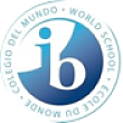- Home
- Academics
- Curriculum
- Wilton Manor IB Curriculum
-
The Wilton Manors IB curriculum is an inquiry-based framework based on transdisciplinary themes, skills for learning and understanding, and concepts to promote meaning and understanding.

Content Accordion
-
IB Transdisciplinary Themes
Six transdisciplinary themes of global significance provide the framework for exploration and study:
Who We Are - An inquiry into the nature of the self; beliefs and values; personal, physical, mental, social, and spiritual health; human relationships including families, friends, communities and cultures; rights and responsibilities; what it means to be human.
Where We Are in Place and Time - An inquiry into orientation in place and time; personal histories; homes and journeys; the discoveries, explorations, and migrations of humankind; the relationships between and the interconnectedness of individuals and civilizations, from local and global perspectives.
How We Express Ourselves - An inquiry into the ways in which we discover and express ideas, feelings, nature, culture, beliefs, and values; the ways in which we reflect on, extend, and enjoy our creativity; our appreciation of the aesthetic.
How the World Works - An inquiry into the natural world and its laws; the interaction between the natural world (physical and biological) and human societies; how humans use their understanding of scientific principles; the impact of scientific and technological advances on society and on the environment.
How We Organize Ourselves - An inquiry into the interconnectedness of human-made systems and communities; the structure and function of organizations; societal decision-making; economic activities and their impact on humankind and the environment.
Sharing the Planet - An inquiry into the rights and responsibilities in the struggle to share finite resources with other people and with other living things; communities and the relationships within and between them; access to equal opportunities; peace and conflict resolution.
Teachers are guided by these six transdisciplinary themes as they design units of inquiry that both transcend and articulate conventional subject boundaries.
-
IB Approaches to Learning
As students construct meaning and understanding, they must also acquire and apply a variety of skills. Subject area skills such as literacy and numeracy are essential for inquiry. However, students will also need to master a range of skills beyond what we normally refer to as basic skills. These skills are relevant to subject areas, but also transcend them in order to support all of a learner’s lives within and beyond the classroom.
Within their learning throughout the programme, students acquire and apply a set of transdisciplinary skills. These skills are associated with many educational 21st Century Skills lists.
The following 5 sets of skills are identified by IB as valuable:
Thinking skills: acquisition of knowledge, comprehension, application, analysis, synthesis, evaluation, dialectical thought, metacognitionSocial skills: accepting responsibility, respecting others, cooperating, resolving conflict, group decision-making, adopting a variety of group roles
Communication skills: listening, speaking, reading, writing viewing, presenting, non-verbal communication
Self-management skills: gross motor skills, fine motor skills, spatial awareness, organization, time management, safety, healthy lifestyle, codes of behavior, informed choices
Research skills: formulating questions, observing, planning, collecting data, recording data, organizing data, interpreting data, presenting research findings.
-
Concepts
Central to the philosophy of the PYP is the principle that purposeful, structured inquiry is a powerful vehicle for learning that promotes meaning and understanding, and challenges students to engage with significant ideas. Hence, in the PYP there is also a commitment to a concept-driven curriculum as a means of supporting that inquiry. The eight concepts used in the design of a transdisciplinary curriculum are:
- Form
- Function
- Causation
- Change
- Connection
- Perspective
- Responsibility
- Reflection


